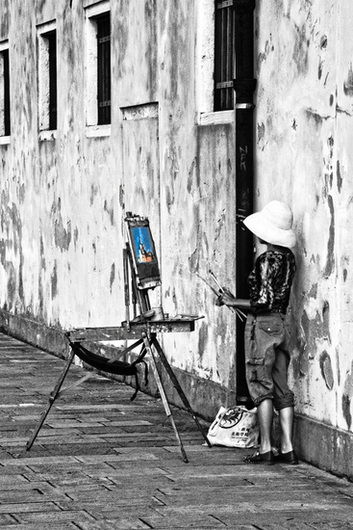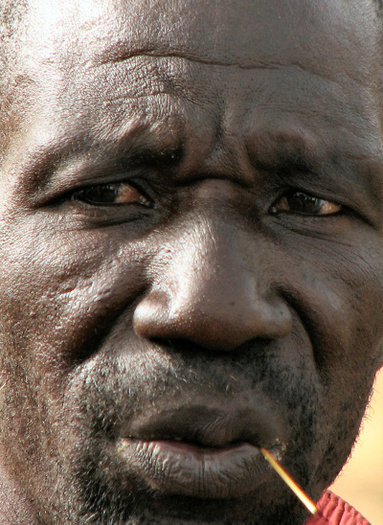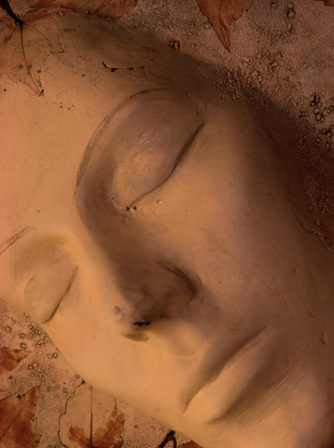 Bear with me, I'll get to the topic. Who on earth was CS Lewis ... really? I watched the BBC TV special on Lewis … did you know that CS Lewis, Aldous Huxley, and J.F. Kennedy all died within 24 hours of each other? Who was the greatest of these three? Is that even a fair question? Probably not. In any case, of these - the Christian, pantheist, and humanist - I suggest that the thinking of Lewis was by far the closest to Truth. Does that make him the "greatest"? Probably not, but it perhaps puts him in the best position to deal with reality. Here was a man who has influenced generations around the world. Like millions of others, I have been deeply changed by reading Lewis; for it is to the degree we allow a text to read our inner self that we allow ourselves to be changed. In Lewis I found a man I could relate to. In my childhood I was drawn by the parallels (at least as I saw them) between Lewis' formative years and my own. His childhood school years were a living hell, mine were a misery. He retreated into imagination, so did I. His father was distant, so was mine. It's likely that I grossly over-interpret the meaning of these things, but at the time it gave me much needed perspective. And so over the years I gratefully built him up as a man of greatness … for “great” he was, if we measure greatness by influence. (Of course, against the standard of God-perfection we're all tiny bumps of indiscernible difference.) So when the BBC narrator spoke of how Lewis' father sending him to that horrid boarding school was a “big mistake”, I reacted negatively. Really, a big mistake? I suspect that if Lewis had experienced a “normal” childhood of easy friends and fun, then we might have lost one of the most important moral forces of the last century. I like to think that Lewis knew this, and was thankful. For myself I wouldn't trade my early years for anything - I am what I am in large part because of those years, and I like what I am (mostly). I would not be what I am without those formative experiences. Of course there are regrets, there always are. But these are regrets over what I did, not of what the world did to me. The gaps I now feel in my life have little relation to past struggles. My deepest desires are not for what this world can deliver. What I really long for is something that is hard to put words to, a sense and a frustration that I was meant for a reality that is more real. It sometimes leaves me feeling almost alone in a crowd because there's a mystery I want to delve into, and few others seem to share this desire. I find people without a such a thirst to be, quite frankly, boring people. But it is the miseries of childhood years that fostered this yearning; I glimpsed through them a bigger reality. I fear that if I had received a "normal" childhood, this would have skillfully played to my less desirable characteristics; those more dangerous attributes that I constantly flirted with. Without the proper checks and balances of experiences I suspect I would have become a deceitful, philandering pig with a temper and arrogance to match. So for my childhood pains (and all experiences) I (try to) give thanks; I would be the lesser for not knowing them. Through them I was molded and formed, and found some measure of wisdom because of these. For that, I am (literally) eternally grateful.  A consequence of struggles is that it helps me see that not everything exists in black and white absolutes, but rather that they present a series of choices. Each choice inexorably applies a pressure to the rudder of my soul. Those moments of my misery were really the grace of course-correction opportunities, steering me away from the cliffs of self-implosion. This was rough ground that I had to traverse so that I would glimpse a fuller reality and learn to thirst for real desire. That is, the desire to walk eagerly toward that final small step into eternity. Drawing on Lewis' imagery, on that final day I believe I will look back in thanks, and will see each moment of past trials through one of two lenses. If I choose wisely, then in each moment I'll see the early emergence of a future beauty. If I stray, my past will be a series of slips and slides to an opposing reality, prescient of a final loss. It all depends on the accumulation of my momentary choices. So those times when I was gripped by uncontrolled childish anger will instead be filtered as lessons on righteous indignation against injustices, or else they will be the tip of a looming iceberg of rebellion. That argumentative spirit which once distressed my parents will be a seed of wisdom tunneling into a reasoning light, exposing the dark corners of my soul. Or else, it will be an enormous pride reveling in momentary power that tries to draw others down my path of delusion.  Such it seems to have been with Lewis; he was truly human with many failings, as I am. He took the experiences the world handed him, and allowed them to illuminate truths that stood independent of his frail human shell, yet he was blessed to see and speak them. Truths that are as hard as diamond and not in any way dependent on the person that tries to carry them. Like Chesterton, we can each discover a new land, only then to find it has been known to others all along. We all make our journeys of exploration through daily experiences, entering new lands where we can choose to uncover treasures of wisdom that all along have been buried in our own back yard. All that is asked is for us to exercise our creative talents, in whatever form we have been gifted, to express truth. So that like fireflies in a dark field a few other souls may be drawn to what we've discovered. Yet in the dark many will still run from our glimmers, and will cover their eyes to protect their tiny worlds. So I give thanks for the troubles; I make no claims to be Lewis (nor would I want to be). But by his dark years he became one who helped me see truths that I would otherwise have missed. I have no ownership of these truths, but I too can discover them, and communicate them. Many times I have stood behind a dirty window that obscured. But the rain of experience can be a great window cleaner. So I come full circle. Why be thankful for moments of trouble? Because, if we let them, then like a rag they scrape away some of the dirt on the window into our lives. Some light can then enter to disturb our zone of false comfort, revealing to us an incorruptible and absolute solidity that we desperately need in a world awash with relativism. Its not easy. Many times we cannot see where, how, or when there could ever be even a vague silver lining. But the joy of discovery was never found without a journey. Every experience, if we allow it, will be used to make us brighter, better, and more solid, more real. Lewis, and many others helped me learn the patience and trust I needed to know that the "now" is infinitely tiny against the landscape of forever. "When I understand that everything happening to me is to make me more Christlike, it resolves a great deal of anxiety" [AW Tozer]
0 Comments
Your comment will be posted after it is approved.
Leave a Reply. |
Important: The views expressed on this blog do not necessarily reflect the official position of our church
Like to Write? Archives
June 2015
|

 RSS Feed
RSS Feed

